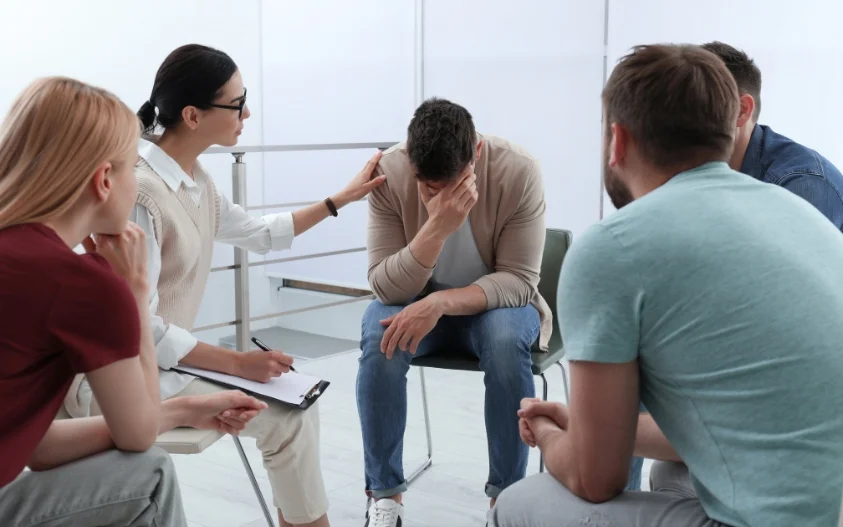24/7 Helpline:
(866) 899-221924/7 Helpline:
(866) 899-2219
Learn more about Stimulant Detox centers in Missoula County
Stimulant Detox in Other Counties

Other Insurance Options

Anthem

Meritain

AllWell

Magellan Health

American Behavioral

PHCS Network

Absolute Total Care

MVP Healthcare

Excellus

Group Health Incorporated

Private insurance

Carleon
Beacon

Covered California

Horizon Healthcare Service

ComPsych

Optum

Magellan

Humana

BlueShield

Teen Challenge – Missoula Women’s Campus
Teen Challenge Missoula Women’s Campus in Missoula, Montana is a drug and alcohol addiction rehab pr...

Providence Saint Patrick Hospital – Mental Health Services
Providence Saint Patrick Hospital - Mental Health Services is a private hospital located in Missoula...

Missoula Addiction Services
Missoula Addiction Services is a private rehab located in Missoula, Montana. Missoula Addiction Serv...

Ideal Option Missoula
Ideal Option is a substance abuse treatment center located in Missoula, MT. The center prides itself...

St. Patrick Hospital – Urgent Mental Health
Providence St. Patrick Hospital in Missoula, Montana, features a neurobehavioral medicine department...

Western Montana Mental Health Center – Adult
Western Montana Mental Health Center – Adult is a private rehab located in Missoula, Montana. Wester...

Western Montana Addiction Services – Adolescent Program
Western Montana Addiction Services – Adolescent Program is a private rehab located in Missoula, Mont...



























































































Certified Counseling Service
Certified Counseling Service is a private rehab located in Missoula, Montana. Certified Counseling S...

AA – Alcoholics Anonymous – North Orange Street
AA – Alcoholics Anonymous – North Orange Street is a non-profit rehab located in Missoula, Montana. ...

Crawford Rehabilitation Services
Crawford Rehabilitation Services is a private rehab located in Missoula, Montana. Crawford Rehabilit...

Montana Assistance Program
Montana Assistance Program is a private rehab located in Missoula, Montana. Montana Assistance Progr...

Cascade Rehabilitation Managemant
Cascade Rehabilitation Managemant is a private rehab located in Missoula, Montana. Cascade Rehabilit...

AWARE
AWARE is a private rehab located in Missoula, Montana. AWARE specializes in the treatment of dual di...

Board Certified Rehabilitation
Board Certified Rehabilitation is a private rehab located in Missoula, Montana. Board Certified Reha...

Recovery Center Missoula
Recovery Center Missoula is a drug and alcohol rehab located in Missoula, Montana for adults. It off...

Community Care – Insight
Community Care – Insight is a private rehab located in Missoula, Montana. Community Care – Insight s...

Western Montana Mental Health Center – Share House
Western Montana Mental Health Center – Share House is a private rehab located in Missoula, Montana. ...

Acupuncture Detox & Stress Reduction Clinic
Acupuncture Detox & Stress Reduction Clinic is a private rehab located in Missoula, Montana. Acupunc...

3 Rivers Mental Health Solutions
3 Rivers Mental Health Solutions is a private rehab located in Missoula, MT. 3 Rivers Mental Health ...

Full Circle Counseling Solutions
Full Circle Counseling Solutions is a private rehab located in Missoula, Montana. Full Circle Counse...

Teen Challange
Teen Challange is a private rehab located in Missoula, Montana. Teen Challange specializes in the tr...

Community Counseling Solutions
Community Counseling Solutions is a non-profit rehab located in Condon, OR. Community Counseling Sol...







































































